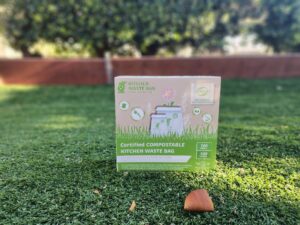Eliminating plastic pollution has become a global priority, with increasingly stringent policies emerging to control plastic waste. In the context of addressing rising plastic pollution, meeting both international and domestic regulatory requirements, and enhancing corporate sustainability, the demand for eco-friendly materials is growing.
However, promoting these eco-friendly materials has encountered challenges. On one hand, during the implementation of plastic-free, biodegradable coating technology in Europe and the United States, leakage issues have been common, hindering the progress of sustainable development and affecting user experience. On the other hand, traditional polyethylene (PE) coatings, while widely used, still face challenges in recycling and environmental sustainability. Additionally, biodegradable polylactic acid (PLA) coatings struggle with cost and technical barriers, making it difficult to meet the demands for high-temperature resistance and leak durability.
The global industry is increasingly focused on replacing plastic with paper and innovating biodegradable plastic technologies. Paper-based packaging products offer natural advantages such as renewability, recyclability, and biodegradability. Promoting the “paper instead of plastic” approach can effectively reduce the use of fossil-based materials, lowering carbon emissions and providing a viable direction for eliminating plastic pollution. This represents a significant milestone in protecting the environment, promoting green industries, and achieving sustainable development.
Leak-Free, Plastic-Free Materials
To achieve water and oil resistance, traditional materials often require a plastic coating on the base material, with most of the market currently using polyethylene (PE) coatings. This results in non-degradable, difficult-to-recycle products. In response to the industry’s demand for green and sustainable development, companies have developed biodegradable coating products and water-based acrylic emulsion coating technologies. Compared with traditional coating processes, water-based acrylic emulsion barrier coatings offer the advantages of resource conservation, recyclability, and repulpability, leading to the development of plastic-free materials.
At the 2022 United Nations Environment Assembly, a globally binding plastic treaty was being formulated, and alternative technologies to PE coatings were being explored. Water-based acrylic coating technology, an emerging eco-friendly coating technology, has been developed and promoted by global chemical giants such as BASF in Germany, Wanhua Chemical in China, and Dow Chemical in the United States. BASF’s JONCRYL water-based acrylic emulsion barrier coating technology stands out, gaining recognition within the industry. Supported by material innovation companies like SinoChem, DBC Group, and Enfuze Coatings, the HPB-DBC4110 solution, a durable, eco-friendly water-based acrylic barrier coating, was developed. This solution effectively addresses the challenge of combining leak resistance with environmental sustainability, offering hope for the high-quality, sustainable development of various industries, and serving as an effective alternative to PE coatings.
Water-based acrylic barrier coating technology provides a new milestone and direction for eliminating plastic pollution, offering high-performance, safer, and more eco-friendly solutions to the industry. Applying water-based acrylic emulsion coatings effectively prevents leakage and provides excellent adhesion, heat resistance, and resistance to various substances. Unlike ordinary plastic-coated products, these materials offer better tolerance for warm or hot contents. Furthermore, BASF’s water-based acrylic emulsion barrier coating technology complies with GMP production and quality management regulations and meets food contact material standards in the US FDA, German BfR, and China’s GB.
Leading companies, such as Starbucks, KFC, and McDonald’s, are seeking eco-friendly packaging solutions to comply with global policies, regulations, and consumer demands for controlling rising plastic pollution. The promotion and application of water-based acrylic barrier coating technology will help businesses align with policy trends while achieving greener, more sustainable operations, establishing a green and eco-friendly brand image, and tapping into the potential of green consumer development. Water-based acrylic coated materials are poised to gain widespread adoption globally, contributing to a better, greener future for the planet and humanity.
As technology advances, the eco-friendly material industry will continue to innovate and upgrade to meet the growing demand for sustainable products from both consumers and businesses. Cooperation among governments, research institutions, and companies will become more intense, accelerating technological progress in this field and fostering positive development trends. We look forward to the emergence of more eco-friendly materials and technologies to gradually replace traditional fossil-based products, making a positive contribution to global environmental governance. From recyclable materials to broader applications, the commercialization of eco-friendly materials and technologies will undoubtedly become a driving force for sustainable consumption, industry, and societal development as a whole.




